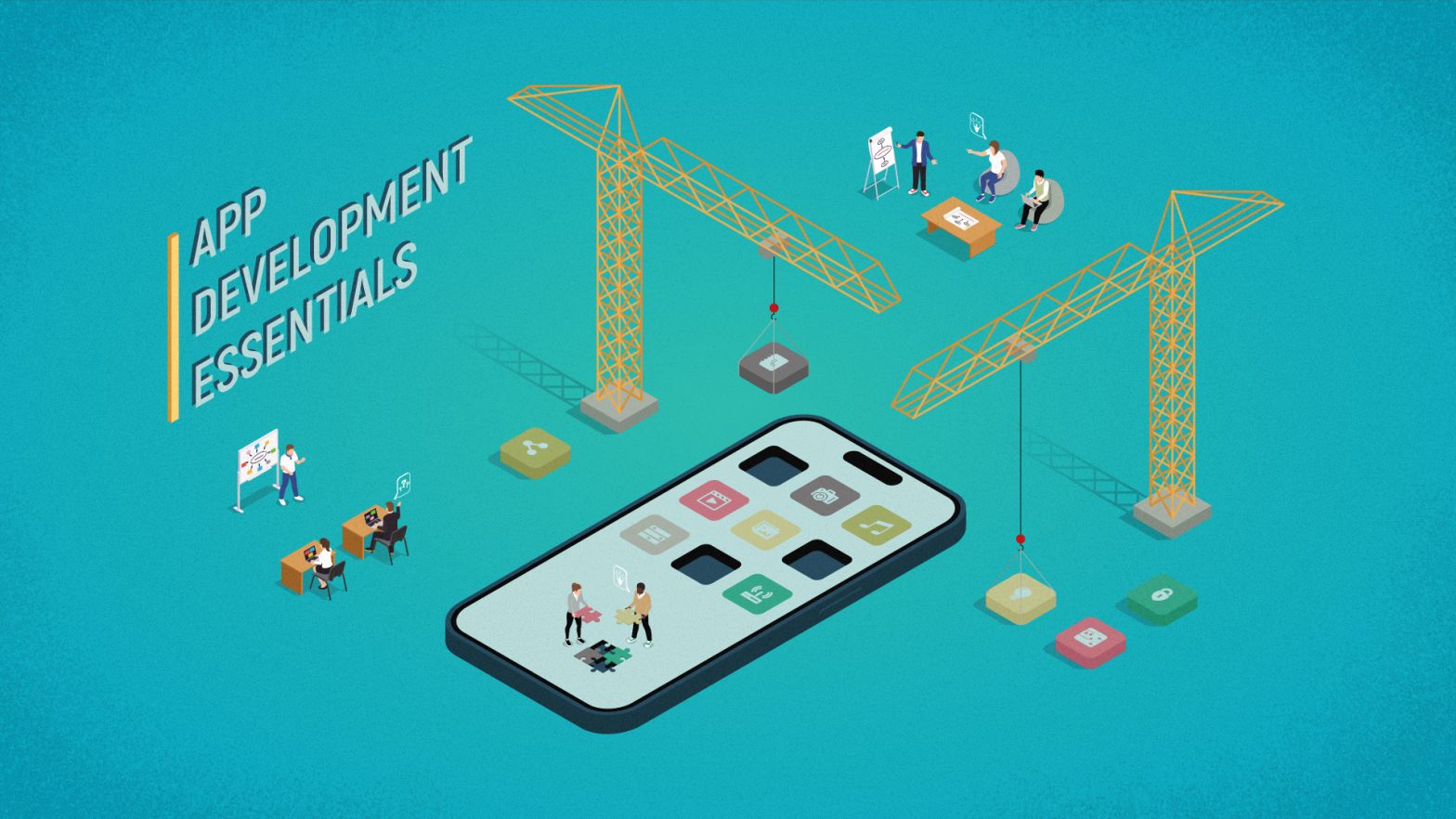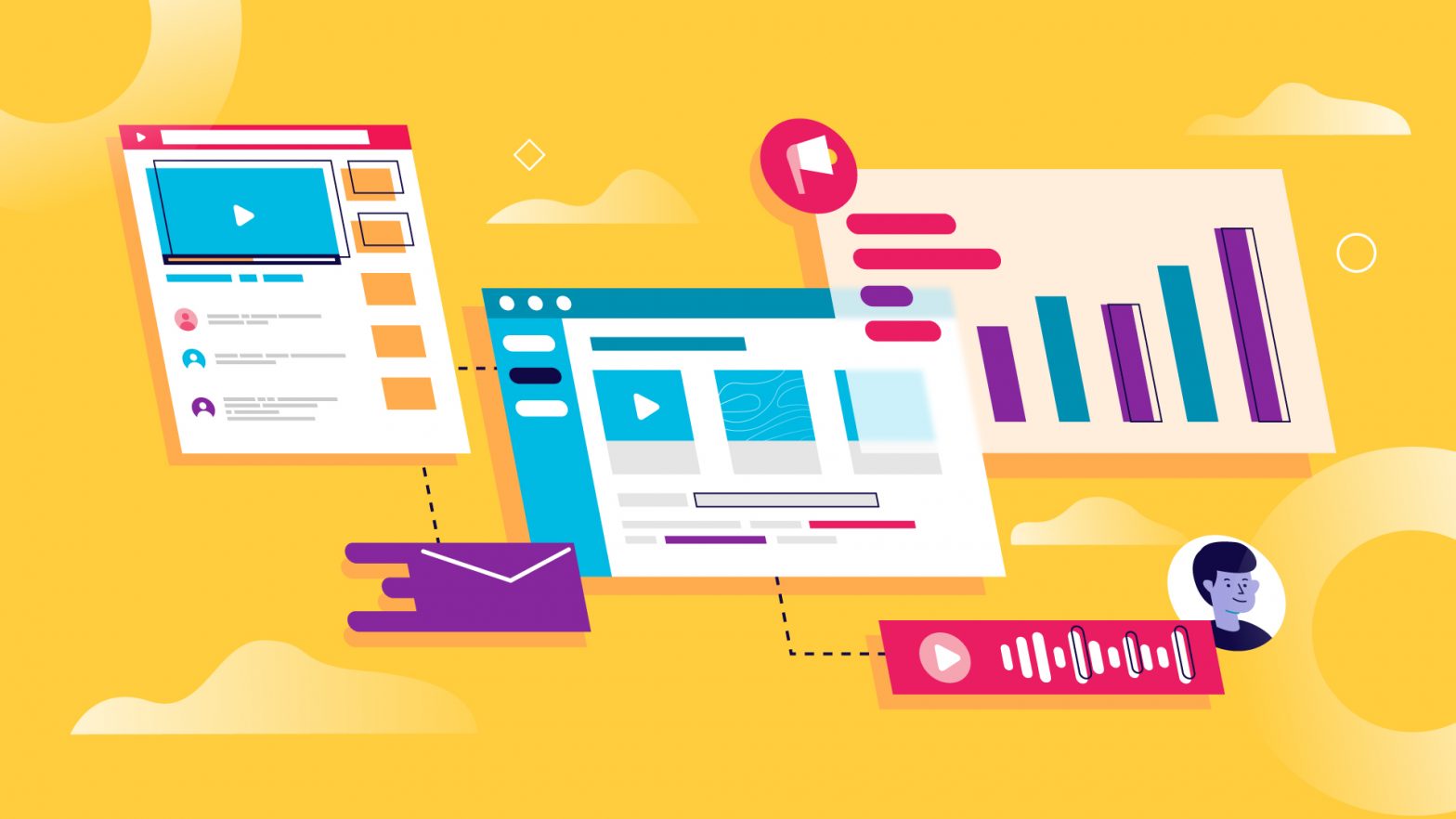The differences between large-scale businesses & startups are innumerable. Technically, established brands have no shortage of funds and resources.
On the other hand, due to less capital and limited resource allocation, startups look for faster time to market & top-notch quality at an affordable rate.
For them, having a feature-rich mobile application will be the best tool that allows startups to reach a broader audience base and stay on top of the market. Let’s have a look at different aspects of mobile app development for startups.
6 Perks of Custom App Development for Startups
App development brings plenty of benefits for startups, such as driving business growth and improving customer experience.
By strategically investing in mobile app development, today’s entrepreneurs get tailored solutions according to their project needs.
High Scalability
Custom mobile apps are designed and developed with scalability that allows them to evolve and grow as the business expands. Due to high scalability, business entrepreneurs can seamlessly future-proof their operations & ensure they will adapt to market conditions.
Improved Customer Engagement
Mobile applications provide direct channels for small-scale businesses & startups to enhance real-time customer engagement.
Offering notifications, personalized content, and offers, as well as custom apps, can make a tailored user experience to improve customer loyalty. Key features like feedback forms, loyalty programs, and in-app messaging to create better relationships with audiences.
Better Operational Efficiency
Custom mobile apps streamline complex business processes, boost operational efficiency, and minimize manual efforts. Some apps are also designed with offline functionalities.
This improves app performance and eliminates the risks of data loss. Simplifying day-to-day operations and managing workflows save time with an increase in business productivity.
Revenue Generation
Custom applications offer startups several revenue streams and marketing opportunities, such as subscription models, in-app purchases, sponsorships, and deals. By optimizing user engagement and implementing appropriate pricing strategies, startups can drive high business profitability and generate high revenue streams.
Competitive Advantage
Having a fully functional and well-crafted website is essential to stay ahead of the competition. Unique app features not only improve user experience but also provide solutions for specific challenges. Top-notch performance, cutting-edge features, and functionalities set startups apart from the competition.
Data Insights for Growth
Mobile applications help businesses manage valuable data insights and optimize marketing strategies and their products. Through proper data analytics, businesses can easily track user preferences and demands.
This data helps startups make well-informed decisions and find trends to meet consumer needs. With the help of data-driven insights, startups drive massive business growth & stay on top of the competition.
Steps to Developing an App for Startups
The process of making a mobile app for startups involves plenty of steps from identifying needs to final deployment. Let’s have a look at how to build an app for startups.
Step 1: Do Research to Identify User Needs
The first step of app development is to conduct deep market research to find the needs and requirements of the target audience.
Deep market research helps you study competitors, user preferences, and the latest trends. As a result, you will find the market gaps and ensure that your application will align with the target demographic.
Step 2: Define Project Objectives and Goals
Before you kickstart your app development journey, it’s important to define project goals and objectives for your application. Setting up a concrete foundation serves as a new benchmark that measures post-launch success.
Step 3: Design UI/UX
User interface and user experience design is an important aspect of mobile app development. You need to invest resources and time in creating user-friendly and intuitive interfaces. Emphasize quality UX design services to conduct usability testing, gather feedback, and perform design audits. You can then adjust the app design until it meets user expectations.
Step 4: Choice of App Development Platforms
There are several app development platforms available such as hybrid, cross-platform, native, etc. Based on budget, user demands, and features, you need to choose the right platform. Carefully evaluate all these factors to determine the best development approaches for your application.
Step 5: Develop a Robust Architecture
Scalability is important for small businesses and startups that want to expand their growth and improve user bases. Developing a robust architecture and development environment ensures that your application can manage high traffic and accommodate unique features without compromising stability.
Step 6: Focus on Data Privacy and Security
Prioritizing data privacy and security is important for mobile app development. Implement advanced security measures to protect security measures and user data from exploitation or unauthorized access. Adhering to regulations and industry standards like HIPAA and GDPR is important for developing trust and avoiding legal repercussions.
Step 7: Quality Assurance and Testing
Before app launch, conduct testing and quality assurance to address glitches, bugs, and performance issues. Leverage advanced techniques and testing tools to make the testing process streamlined.
7 Best App Categories for Startups
Startups have a comprehensive range of categories. Each category caters to several business objectives and requirements. Some of the important app categories for startups are:
1. Social Apps
Social apps help startups foster connections, enhance user interaction, and build communities. Some of the notable features of social apps include news feeds, messaging, user profiles, audio, and video sharing, etc. Creating a unique social network can level up user engagement and create networking opportunities and user-generated content.
2. eCommerce Apps
eCommerce Apps are in great demand as they help startups directly sell services and products through smartphones and tablets. These applications offer a convenient and user-friendly platform for customers to find their favorite products, buy them, and track orders easily.
Startups use features like secure payment gateways, personalized recommendations, and product catalogs to boost user experience and drive more sales.
3. Health and Fitness Apps
These apps are designed to improve the mental & physical health of users through fitness tracking, meditation, mindfulness practices, etc.
Fitness apps help startups by offering customized workout plans, meditation sessions, meal tracking, health monitoring, etc. With these apps, users can manage their health conditions flawlessly.
4. On-Demand Apps
On-demand app categories build a connection between service providers and users to streamline various tasks like transportation, food delivery, home services, etc. These apps allow startups to provide on-demand solutions to address user pain points.
Important features like real-time tracking, reviews or ratings, and geolocations improve overall user experience and facilitate trust between service providers and users.
5. Educational Apps
Educational apps are designed to enhance the online learning experience and give access to online tutorials, courses, and learning resources. By developing educational apps, startups can build interactive online learning solutions for diverse learning preferences and styles.
6. Gaming Apps
Gaming applications are best for entertaining users with engaging gameplay and immersive & interactive user experience. Creating casual games like simulations, puzzles, etc, can grab user attention and increase user engagement.
Moreover, different monetization options like subscriptions, virtual assets, and in-app purchases make gaming apps more interactive and engaging. In this way, startups generate revenues while offering a better user experience.
7. Collaboration and Productivity Apps
This category allows users to manage tasks, coordinate with teammates, and organize data effectively. Collaboration app development helps startups by offering some unique features like document sharing, project tracking, task management, team messaging, etc.
Real-life Examples of Startup Apps
There are thousands of startup apps available on the Play Store and App Store. In terms of popularity, features & functionalities, some of the popular startup apps include:
1. Elsa
This is an AI-based application designed for English language learning. It makes the traditional learning process easier.
Users can develop their pronunciation and vocabulary skills efficiently and enhance their accents. That is what makes Elsa a perfect choice for those people who want to prepare for the language assessments.
2. Prism
This is another app that allows you to manage your bills effectively. With this app, you can pay diverse bills like electricity, internet, water, gas, etc.
This app also allows you to add several payment accounts and credit cards to pay bills conveniently. Once you’ve installed this application, it starts tracking your bills and sends reminders regarding your payments.
3. Talkspace
Nowadays, many people look for mental health support for several reasons. To overcome this challenge, the Talkspace app is designed. This is a unique application that helps you find mental health experts easily.
This app offers quick access to experienced and licensed therapists who will perfectly fit your mental health concerns. In the Talkspace application, you need to answer a few questions regarding your goals, needs, and preferences. Based on the requirements, it will connect you with the best therapists.
4. Hootsuite
This is a SaaS-based application designed to fit your personal and professional life. With this app, you will get a strong social media presence with friends, colleagues, peers, and family members easily.
The Hootsuite app also allows you to have an appropriate presence on different social platforms like YouTube, Facebook, Twitter, etc. This app will help you update your feed conveniently.
5. Notion
This is another SaaS-based application that can be used as a productivity tool. It offers a complete workspace that helps you manage your team and workflow efficiently.
Moreover, Notion allows you to create, plan, and manage several activities and tasks appropriately.
6. Chime
Chime is one of the best examples of fintech applications that transform the traditional banking method. This app provides a complete package containing a savings account, a secured credit card, and a checking account. It offers all the facilities that a traditional bank mostly offers.
7. EatSure
This is an excellent application that provides choices of diverse cuisines. You have complete access to instant delivery support and exciting discount coupons.
With EatSure, you will get the advantage of prioritizing the queries. In addition, you can effectively track and monitor your food with real-time features.
8. Foodpanda
This is a very popular application for online food ordering & food delivery. You will have diverse options related to beverages and foods from your nearest restaurants. You can easily select your favorite dishes from multiple options from the top restaurants.
Create High-Performing Apps Today
There are tangible outcomes associated with custom mobile app development for small businesses and startups.
A fully functional and well-crafted app can be an excellent asset for businesses seeking a larger audience base and constant growth. With proper planning & execution, custom app-making can be an extraordinary journey that will take startups to new heights.
Author: Pooja Neharkar, Content Writer at Sphinx Solutions








